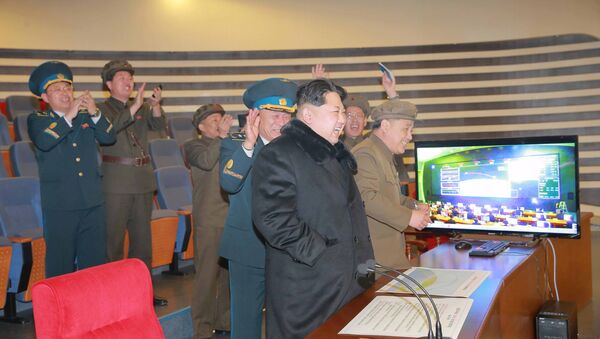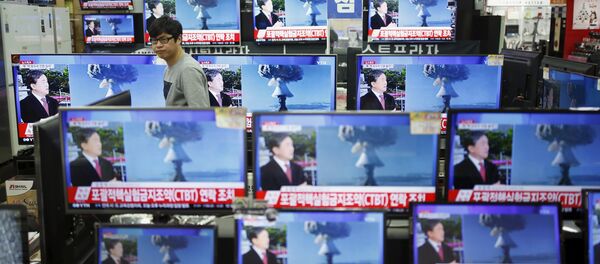WASHINGTON (Sputnik), Michael Hughes — On Thursday, North Korean leader Kim Jong-un put his country on nuclear high alert less than 24 hours after the UNSC unanimously agreed to expand the sanctions regime against Pyongyang for recently conducting a nuclear bomb test and long-range rocket launches.
"The North Korea situation is a product of decades of failure by the nuclear weapons states — the permanent members of the UNSC — to fulfill their Article 6 obligations under the Nuclear Non-Proliferation Treaty (NPT) to negotiate the elimination of nuclear weapons," Christ said on Friday.
The NPT is an international agreement signed by 190 nations to prevent the spread of nuclear weapons that also calls on nuclear states to pursue complete disarmament.
"Efforts by the NWS [nuclear weapons states] to restrict horizontal proliferation are doomed to fail so long as they themselves continue to stockpile thousands of nuclear weapons," Christ stated.
He also criticized the nuclear powers for maintaining launch-on-warning, clinging to the bankrupt theory of deterrence, reinvesting in weapons modernization — otherwise referred to as vertical proliferation — while remaining committed to "the indefinite possession of nuclear weapons."
In early January, Pyongyang said that it had successfully tested a hydrogen bomb. The following month, North Korea fired a long-range rocket to allegedly place a satellite into orbit in defiance of UN Security Council resolutions.
In 2003, North Korea joined talks on denuclearization with the United States, Russia, China, Japan and South Korea, after Pyongyang withdrew from the NPT that it had ratified in 1985.
North Korea declared itself a nuclear power in 2005, and tested its first nuclear weapon the following year. The six-party denuclearization talks came to a halt in 2009, when Pyongyang tested its second nuclear weapon, and have been stalled ever since.



